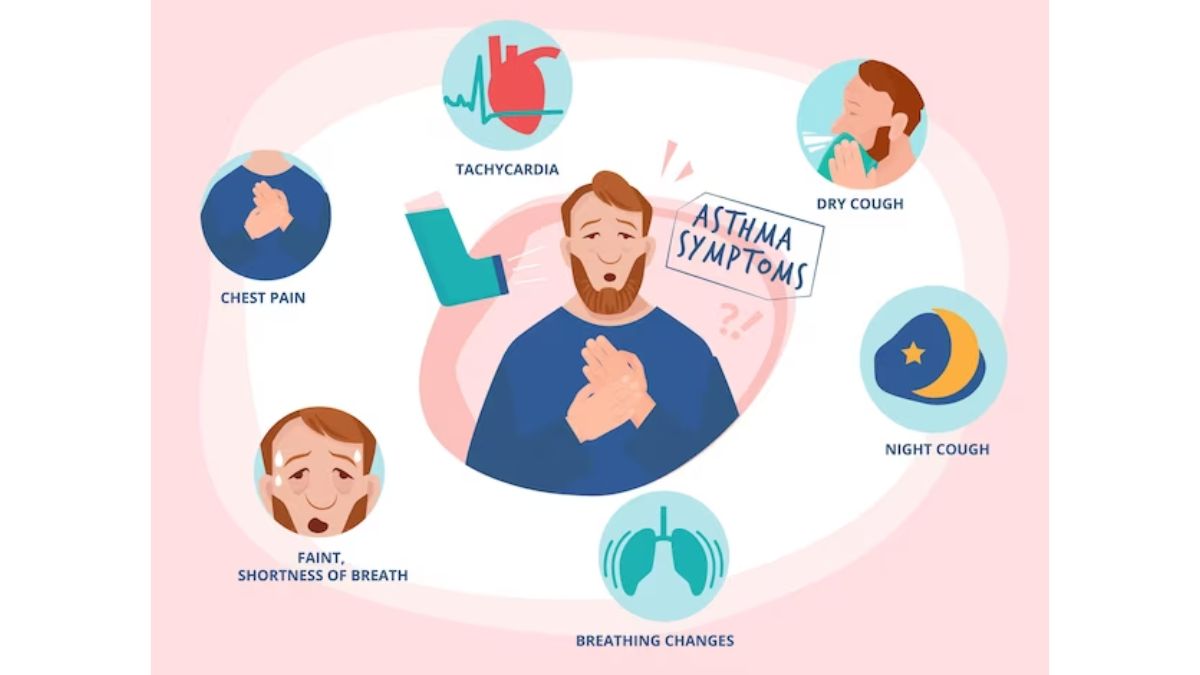- By Prerna Targhotra
- Thu, 09 Nov 2023 12:30 PM (IST)
- Source:JND
Air Pollution And Asthma: Delhi is still struggling with increasing air pollution and worsening air quality index (AQI). The air quality index of the National Capital remained at a ‘very poor’ level on Thursday and has the potential to cause numerous health respiratory conditions.
In a conversation with Jagran English, Dr Ashok K Rajput, Senior Consultant, Pulmonology and Sleep Medicine at the CK Birla Hospital (R), Delhi explained how the deteriorating air quality index can trigger asthma in individuals.
How Air Pollution Triggers Asthma
According to Dr Rajput, people living in pollution-prone areas should routinely monitor air quality and stay informed about local pollution sources and trends. Vigilance enables individuals to take precautions on high pollution days, such as reducing outdoor activities and staying indoors during peak pollution hours. The health effects of air pollution are hazardous as it can cause lung cancer, stroke and heart diseases among many others.
ALSO READ: Can Increasing Air Pollution Lead To Lung Cancer? Doctor-Approved Tips To Reduce The Risk
Tips For Asthma Management
Dr Rajput states that medication adherence is important. Asthma patients must follow their prescribed medication regimens, including bronchodilators and anti-inflammatory drugs, to control symptoms and reduce the risk of exacerbations, even in the face of air pollution. Modifying treatments without professional guidance should be avoided.
Proper inhaler technique is often overlooked but is indispensable for effective asthma management. Patients require comprehensive training on the correct use of inhalers to ensure medication reaches the airways, where it is most effective. Inadequate inhaler use can lead to under-treatment and heightened vulnerability to pollution-induced asthma symptoms.

Air pollution and its effects on asthma (Image Credits: Canva)
Environmental control measures can notably reduce asthma triggers. Homes should be well-ventilated, and air purifiers with HEPA filters can eliminate indoor pollutants. Keeping windows and doors closed during high pollution days and using air conditioning with clean filters creates a safer indoor environment.
ALSO READ: 5 Natural Remedies To Get Relief From Cough Amid Air Pollution
Lifestyle adjustments are pivotal. Regular exercise benefits asthma control, but outdoor activities should be scheduled during periods of lower pollution. Wearing masks, particularly in heavily polluted areas, offers an additional layer of protection.
Addressing asthma in the increasing air pollution demands a multifaceted approach. From monitoring air quality and adhering to medications to perfecting inhaler techniques, managing indoor environments, and advocating for cleaner air, individuals, communities, and policymakers must unite to combat pollution-induced asthma. Through these combined efforts, a person can mitigate the impact of air pollution on respiratory health and strive for a cleaner, safer, and healthier future for all.

